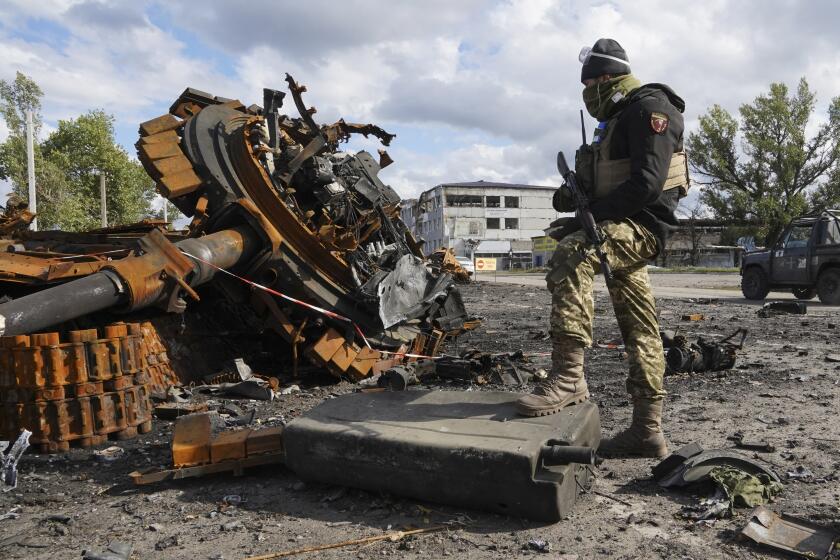Russian journalists defy Putin to report on casualties in Ukraine
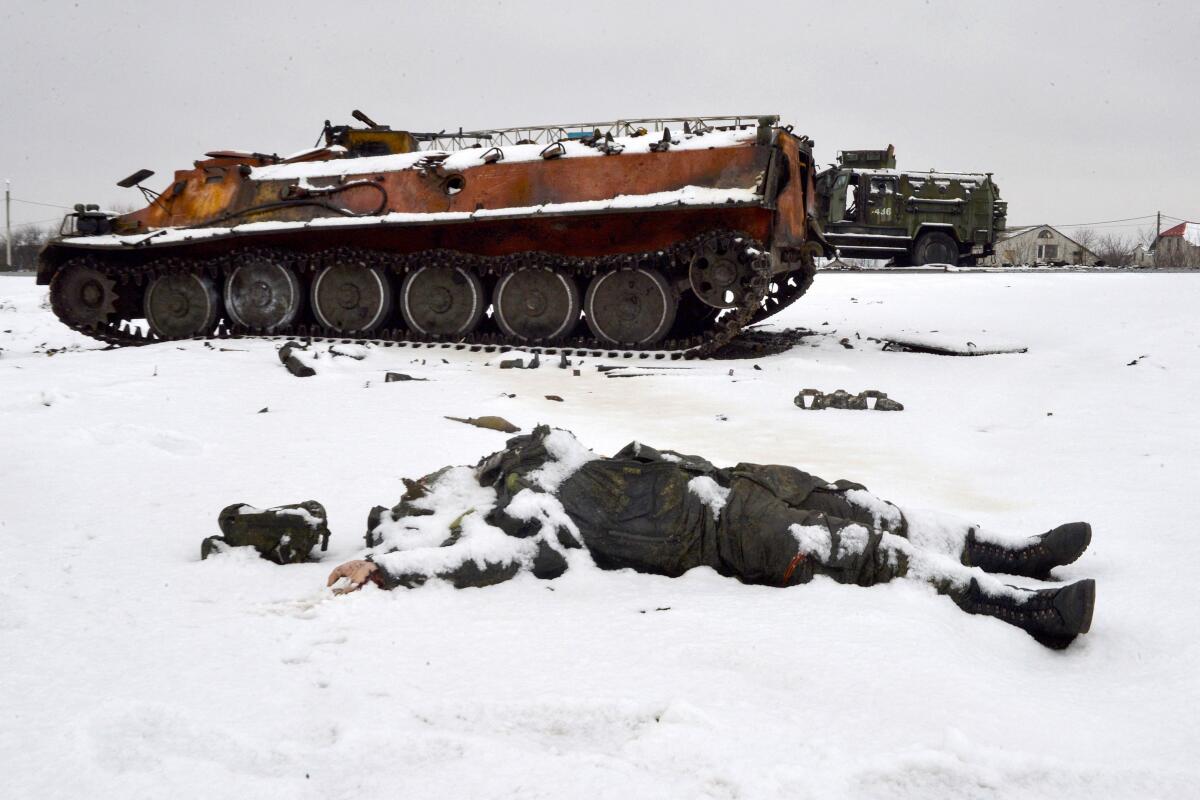
- Share via
Soldiers from Buryatia, a small republic in Siberian Russia, were among the first to be sent to the front lines in Ukraine. And they were among the first to die there.
When journalist Yelana Trifonova heard about a memorial service for the fallen, she immediately bought a ticket for the eight-hour trip from her home in Irkutsk to Ulan-Ude, the capital of Buryatia.
“I wanted to know what was going on there,” said the 46-year-old who works for the online platform Lyudi Baykal. “I wanted to feel the atmosphere, and I wanted to look into the faces of the relatives.”
Trifonova and fellow reporter Olga Mutinova, 44, reported the story of the funeral; Trifonova wrote it, and it was published on April 28 on the landing page of Lyudi Baykal, with photos and video.
Trifonova said she had to do the story, no matter the consequences. But the consequences of defying the Russian government can be steep.
One-third of the roughly 1 million people of Buryatia, which shares a border with Mongolia, are ethnic Buryats and mostly of the Buddhist faith. The average monthly salary in Buryatia is about a third of what people earn in Moscow, and the Russian military is an attractive employer for young people.
Beginning in early March, mourning ceremonies for soldiers who died in Russia’s war on Ukraine were held in the large hall of the Lukodrome, a sports complex in the center of Ulan-Ude. When Trifonova arrived, traffic police had already blocked off the entrance for cars.
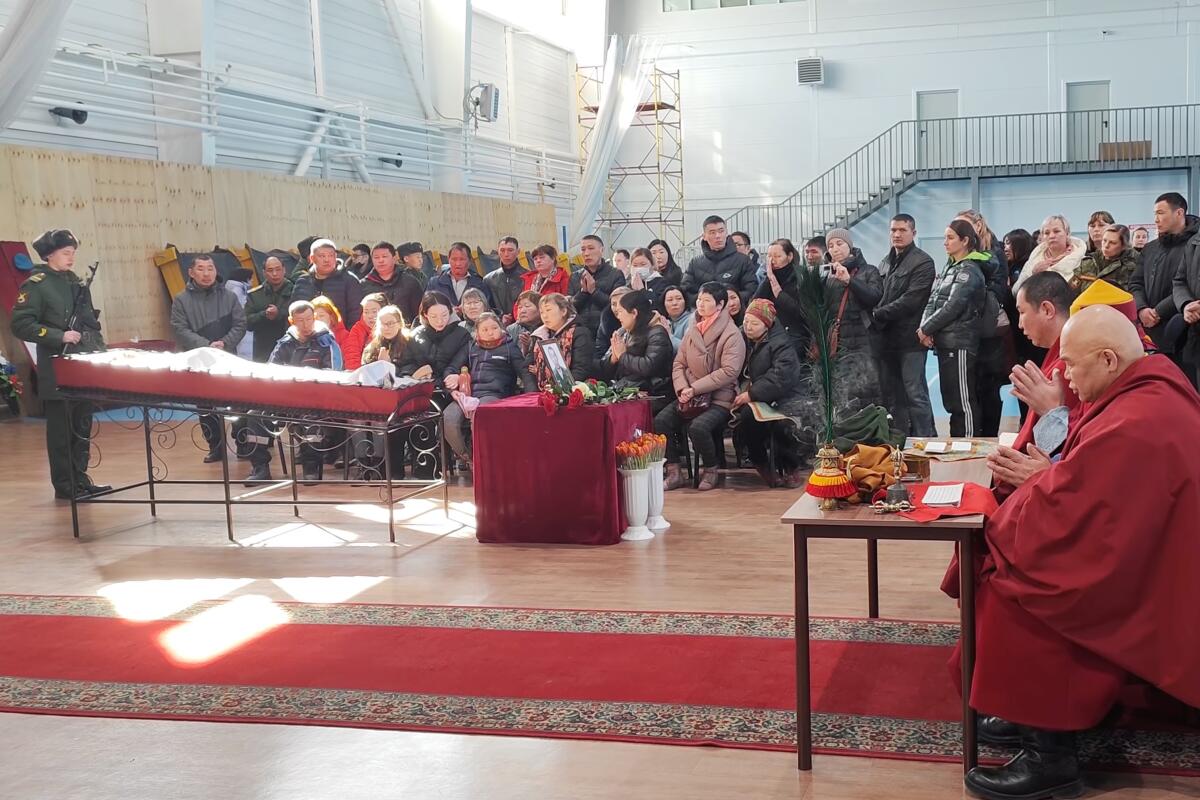
Inside, rather than the one coffin that was originally announced, there were four. The first held 24-year-old Naidal Zyrenow, a local student of the year in 2016, who served in the Russian army as a paramedic. Zyrenow’s hands were crossed on his gray uniform jacket. One hand was bandaged.
The second coffin held the remains of 35-year-old Bulat Odoev, who served in the 5th Armored Brigade and is survived by a pregnant wife and daughter. The body of Shargal Dashiev, 38, who left behind a pregnant wife and two daughters, was in the third. Vladislav Kokorin, 20, who grew up in a children’s home and then went into foster care, was to be buried in the fourth.
Three of the dead were Buddhists and were buried according to traditions associated with the religion. In her story, Trifonova wrote that three Buddhist lamas stood up and began to walk around the coffins — as did the relatives. Not one sound of weeping could be heard.
As Russia’s military performance weakens, a notorious mercenary group, long part of the Ukraine fight, steps into spotlight.
Buddhists, Trifonova wrote, are not supposed to mourn loudly.
After death, the soul must make its way to heaven to then return — after 49 days — in a new body. Tears would block the journey of the deceased and prevent him from letting go.
The ceremony brought clarity for Trifonova. “It became so clear to me why Russia was sending the Buryats first,” she said. “They belong to a small people in Russia, they are poor, they are humble, they are not Slavs — and they do not complain.”
Many of the families, she added, did not want to blame the government, even at the moment of their greatest grief.
“But this isn’t fair,” Trifonova said. “They don’t dare to take people from Moscow or St. Petersburg, so they turn to the ones who are showing the least resistance, like Buryats, Tuvans or Dagestans.”
After the collapse of the Soviet Union in 1991, Russia started to enjoy a lively and pluralistic media landscape. New journals and dailies sprang up, and some of the more established ones were shedding their roles as mouthpieces for the government. Even a government newspaper like Izvestia became informative and readable in the ’90s.
But when Vladimir Putin came to power, expressing dissenting views became increasingly difficult. Pressure on the media to conform with government regulations was stepped up.
A number of journalists were killed in Russia, the most prominent of whom was Anna Politkovskaya, who reported about the war in Chechnya for the Novaya Gazeta and died in 2006.
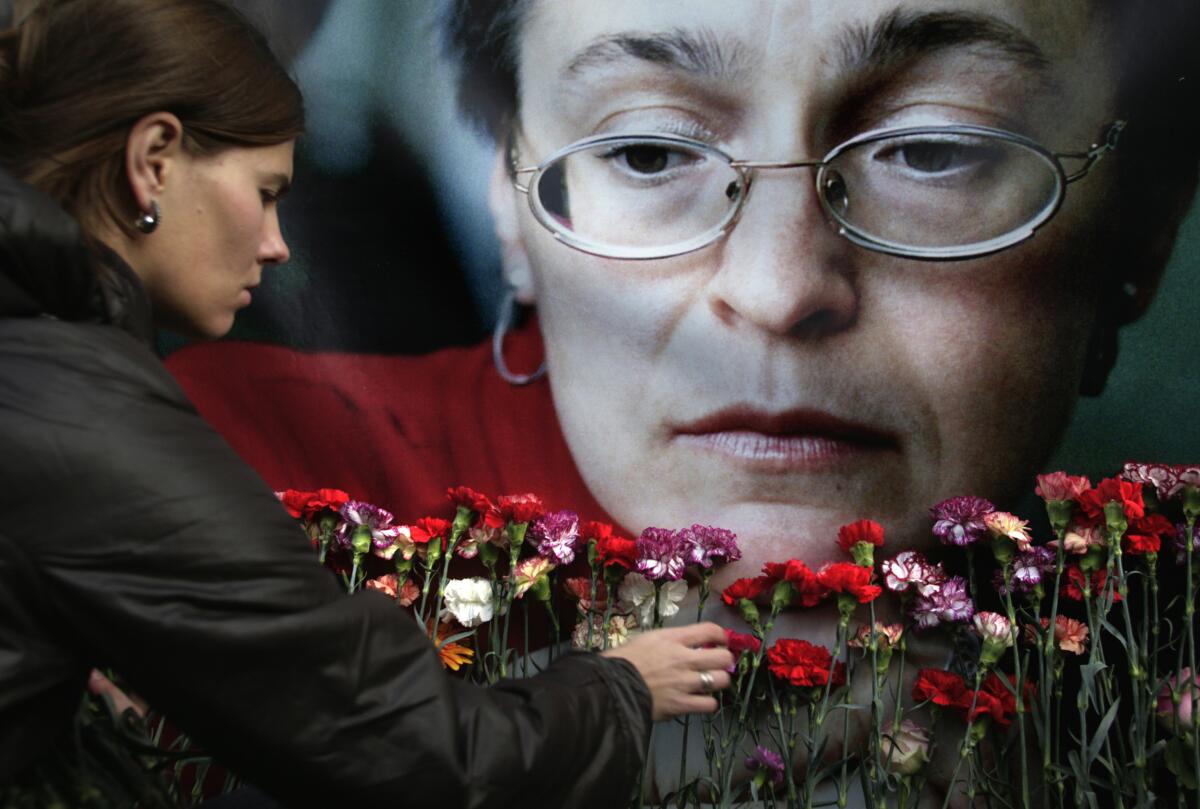
Eventually, the Russian government withdrew the licenses of the few remaining independent news organizations, and they had to shut down.
A relatively new law forbids contradicting the Kremlin’s language rules, which prohibit the use of certain words (“war,” “invasion”) to describe the fighting in Ukraine.
Before moving to Lyudi Baykal, Trifonova and Mutinova worked for more than 10 years at Vostochno-Sibirskaya Pravda, a newspaper that was founded shortly after Russia’s October Revolution of 1917 and is based in Irkutsk. In the last few years, it had been increasingly toeing the line of the local government.
Surging inflation and fears about an energy crisis from Russia’s ongoing war in Ukraine are taking a toll on the finances — and psyches — of Germans.
“The censorship didn’t come overnight, it came gradually,” Mutinova recalled. “Ten years ago, it was still possible to criticize the governor. Five years ago, this was already a no-go.”
The limits on reporting became tighter every year as the newspaper became more dependent on state funding.
“If we wanted to write about the conditions in the local prison or even mention the name of Alexei Navalny, we crossed a red line,” Mutinova said, referring to Russia’s best-known dissident. “The same was true if we simply wanted to report on protests taking place in the main square in Irkutsk.”
What was left to write were innocuous stories about nature or the local hospital, she said. “This is not the journalism we stand for,” she said.
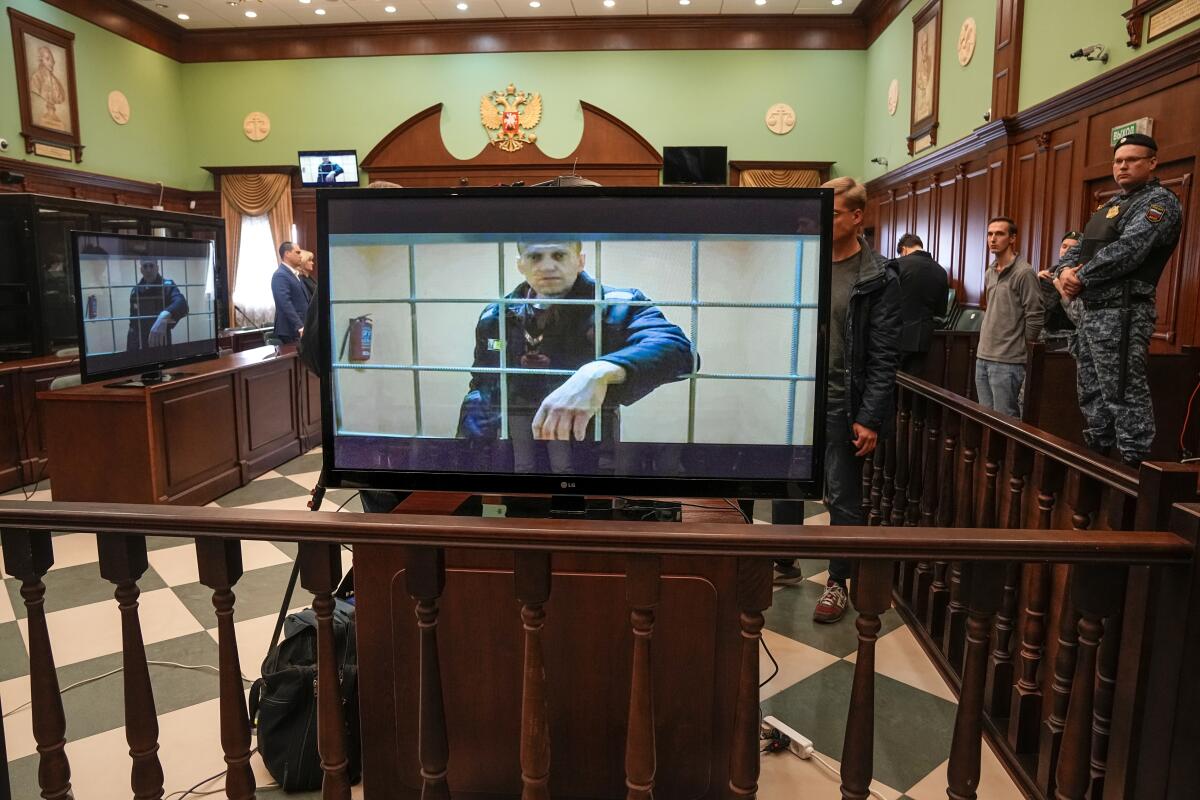
Shortly after the Russian war in Ukraine started, Mutinova and Trifonova assumed editorial responsibility for Lyudi Baykal. The website used to belong to Vostochno-Sibirskaya Pravda but had become independent thanks to a private investor.
There they reported and wrote stories — concentrating their reporting on the Irkutsk-Baikal region — about the dead and the wounded, about the tragedies of war, about the mobilization of soldiers and about cases of corruption.
“Once reporters were there to control the people in power,” Mutinova said. “This is what we are supposed to do.”
Now, however, the journalists have to publish behind an invisible curtain.
On April 16, Roskomnadzor, Russia’s federal media regulator, declared, without giving any reason, that it would block access to Lyudi Baykal. The website can be accessed only through a virtual private network, or VPN, which connects users to a private server that encrypts internet traffic and allows them to bypass restrictions. According to Trifonova and Mutinova, Russians are increasingly turning to VPNs to get independent information.
After Lyudi Baykal was officially blocked, Mutinova and Trifonova said, donations rose and messages of encouragement and gratitude poured in.
“The story about the funeral in Ulan-Ude was read about 80,000 times,” Mutinova said. “Some of our videos have been viewed hundreds of thousands of times.”
Trifonova added: “People have been brainwashed for months by official propaganda and repeated their version of why we are at war with Ukraine” — that the military action was necessary to cleanse Ukraine of “Nazis,” to liberate the oppressed people of the Donbas and to show the West that Russians can’t be bullied. “But now as the war is getting closer, and the victims and the sufferings can no longer be concealed, more and more are waking up.”
Since the start of the war in Ukraine, thousands of Russian journalists have paid a price, accused of spreading “fake” news about the military. Sanctions have ranged from fines to sentences of five days in jail to years in prison.
Journalists who attended the funerals in Ulan-Ude were questioned by the police and told to stop reporting on them. On Sept. 23, Mutinova and Trifonova were handcuffed and arrested by local police in Irkutsk, and freed after three hours of interrogation. No charges were filed. A case is underway against them for allegedly distributing fliers that say, “No to war.”
Mutinova and Trifonova were arrested two days after the mobilization of 300,000 Russian military reservists was announced. The measure led to many thousands of younger Russians fleeing the country to escape the draft.
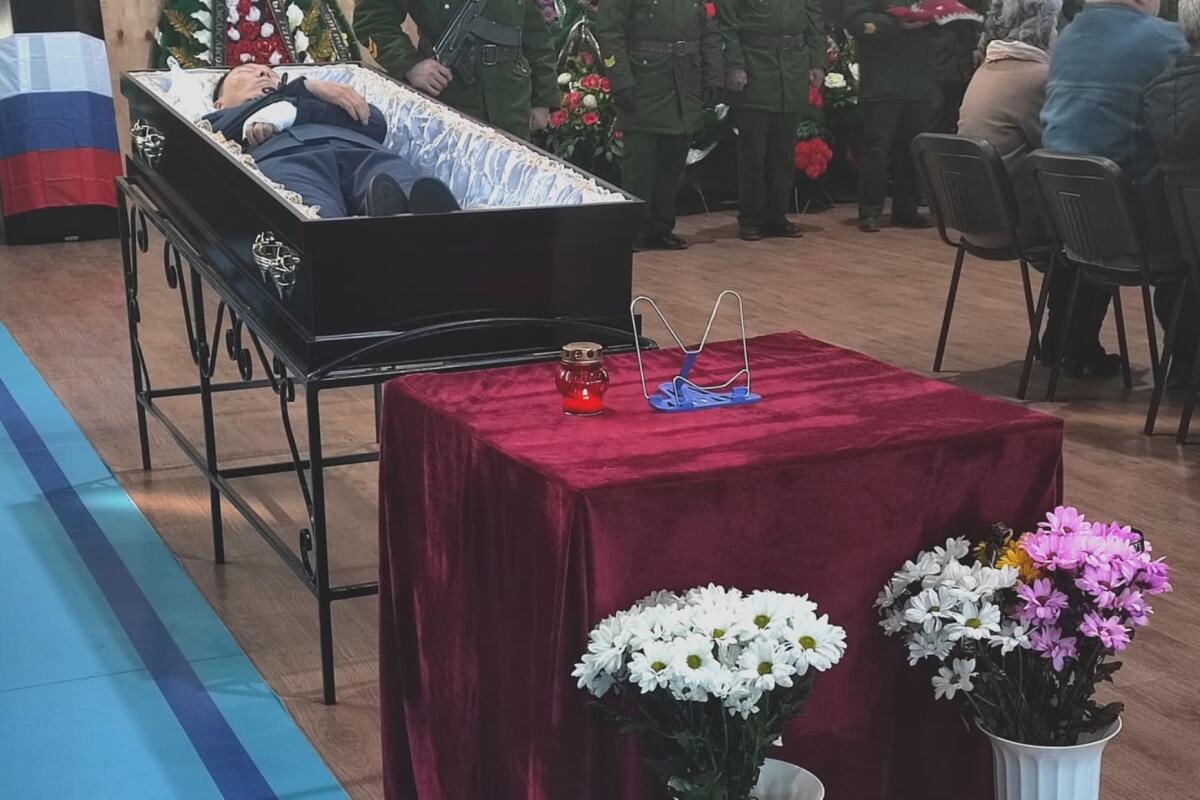
“The mobilization is the big game-changer,” Mutinova says. “Now no one can claim that the war is none of their business. The war has arrived in every house, in every apartment.”
Lyudi Baykal is publishing a running list of the dead. So far, 336 Buryats and 78 soldiers from the Irkutsk region have returned in wooden coffins. Russian authorities long ago stopped publishing any numbers.
Back in March, when the funeral ceremony at Ulan-Ude’s Lukodrome was drawing to a close, officials stepped up to the microphone. Bair Tsyrenov, deputy chairman of the government of the republic of Buryatia, said of the fallen soldiers, “They died for the greatness of Russia, for the end of bloodshed in Ukraine.”
Ulan-Ude Mayor Igor Shutenkov announced: “They fell to defend the future of our country.”
Lt. Col. Vitaly Laskov, commander of the 11th Airborne Assault Brigade, added, “The paratroopers took their last leap into the sky.”
“There was no sobbing,” Trifonova recalls. “Only pain-filled silence.”
Markus Ziener is a special correspondent.
More to Read
Sign up for Essential California
The most important California stories and recommendations in your inbox every morning.
You may occasionally receive promotional content from the Los Angeles Times.
